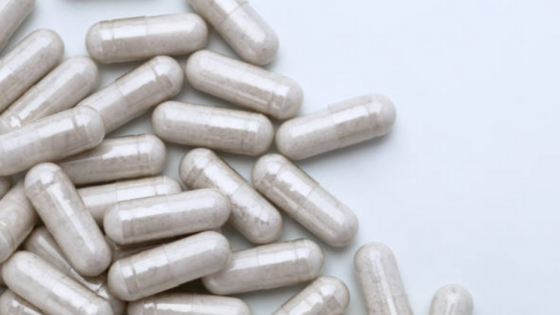
Microbiome Supplements for Gut Health
Share
Written by Adam Livingston, PharmD, NutriChem Pharmacist
Whenever patients at our pharmacy are starting a course of antibiotics, we always recommend probiotics to prevent some of their gastrointestinal side effects. However, there is mounting evidence that probiotic bacteria are safe and effective in a vast array of conditions beyond just antibiotic-induced diarrhea. The microbiome is rapidly emerging as a central pillar of health, and although the best way to improve gut health is through diet, there are lots of beneficial microbiome supplements out there. And probiotics are just one type of microbiome supplement. There are also many prebiotic fibres that help to grow healthy gut bacteria and provide longer-lasting effects than probiotics alone.
Here are my top choices for microbiome supplements:
Multi-Strain Probiotics containing 50 Billion CFU
A multi-strain probiotic containing a combination of Lactobacillus and Bifidobacterium is the foundation of a microbiome supplement regimen. Since we work with many patients that have food sensitivities and allergies, I prefer giving patients a hypoallergenic probiotic that is dairy-free, soy-free, and gluten free. With very sensitive patients, I would not start at 50 billion CFU daily. I would start low and go slow with the dosing, probably starting around 5-10 billion CFU and working up to 50 billion units daily. Many people may think this dosing is too high for daily consumption, but there is debate over the proper dosing of probiotics, and clinically we don’t tend to see real results at lower doses. I often try to get patients up to 50 billion units daily for maintenance of healthy gut bacteria, and much higher doses for specific conditions. Multi-strain probiotics have lots of clinical trials showing benefit in a wide array of conditions, including diarrhea, gastrointestinal conditions, acne, eczema, anxiety, and depression.
Bioflavonoid Prebiotics
Bioflavonoids are a type of polyphenolic compound found in many fruits and vegetables. They are prebiotics occurring at the highest concentrations in the peels of citrus fruits like oranges, grapefruits, lemons, and limes. Two bioflavonoid prebiotics in particular, hesperidin and naringin, have been shown to increase levels of the healthy bacterial groups Clostridium Clusters IV and XIV. These bioflavonoids are also potent antioxidants and confer cardiovascular health benefits as well. At NutriChem, we have a product called Factor 4 Fibre that contains both hesperidin and naringin in high doses and it is much better tolerated than classic prebiotic fibres like inulin. With patients who have acute gas, bloating, or irritable bowel conditions, our clinic always uses these bioflavonoids first since they don’t cause stomach upset, gas, or diarrhea the way some other prebiotics can. Hesperidin and naringin in Factor 4 Fibre are good “starter” prebiotics.
Oligosaccharide Prebiotics (FOS/GOS/XOS)
These prebiotics are non-digestible carbohydrates that our body cannot digest but our gut bacteria digest and feed on. They include inulin, as well as a variety of other fructans like FOS, GOS, and XOS that are fermented in the gut. They are naturally found at high concentrations in vegetables like chicory root (which is the commercial source of inulin fibre), onions, and garlic, amongst many others. These prebiotics can be great for individuals with an already healthy gut looking to maintain healthy bacteria. If you don’t have any pre-existing gastrointestinal conditions and you want to anchor healthy bacteria from a probiotic, or simply maintain healthy bacteria in the gut, these can be very useful prebiotics. In particular, XOS is the most potent of the oligosaccharides and seems to be the best tolerated. However, it is very important to note that these prebiotics should be avoided in individuals with certain conditions like irritable bowel disease and SIBO (small intestinal bacterial overgrowth) since they can feed unhealthy bacteria as well and actually worsen their symptoms.
Dr. Adam Livingston, PharmD, is a clinical pharmacist at NutriChem Compounding Pharmacy and Clinic. He is NutriChem’s Deprescribing Program Coordinator. Adam’s areas of focus include medication deprescribing, gastrointestinal health, mental health, and addiction.





1 comment
In 2018 I had a major collapse of my digestive system and eventually found a probiotic that has helped me (after several other fails). I have been taking New Roots HumanProbiotics 42+ Billion for over a year now, but I have been thinking they are not doing the job they use to. After reading this article I am considering upping the dose. My question is, should I Take 2 capsules at the same time or separately? Your incite will be appreciated. Thank you.
Charlene Newton